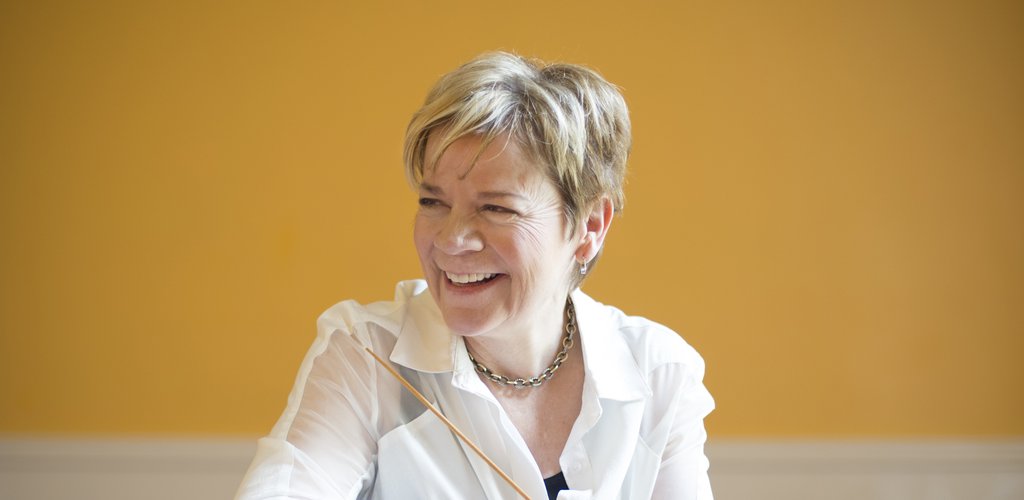I assume, you are tired of the obligate question about being a conductor as a woman. But of course, after such a long music history of male conductors one wants to know the answer why didn’t women (with very few exception) chose to be on stage as conductors?
Marin Alsop: You are correct - this is a somewhat tiring subject. Do you think that the reason there haven’t been more women on the major podiums of the world is because women have chosen NOT to pursue conducting? I believe that if all things were equal, we would probably see the same number of women as men on the podium, but the same opportunities have not existed for women. In 2002 I started a fellowship for women conductors called the Taki Concordia Conducting Fellowship to create more opportunities for women. Of the 11 recipients, 5 are now American Music Directors, 4 are assistants with major orchestras throughout the world and 2 started their own orchestras. Success is possible only through opportunity. I applaud my fellow conductors who have joined in creating more opportunities for women, like this one I am now having in Budapest thanks to Maestro Fischer.
Does this mean that you had to fight for being accepted by the audience and by your colleagues more than the talented male conductors?
M.A.: I have never felt a need to “fight” anyone. Acceptance comes out of respect and trust. These things are earned over time, not through fighting.
You decided to be a conductor in your early childhood already. Can you remember when and how it started in your life to think about conducting?
M.A.: My parents were both professional musicians and took me to see Bernstein conduct when I was 9 years old. That was the day I decided to become a conductor. I never changed my mind, even for a moment.

You played and play the violin on a very high level. How can you find the harmonic balance between playing and conducting?
M.A.: I no longer play violin professionally because my conducting schedule is too demanding, but I loved playing and think having had the opportunity to play in great orchestras under many great conductors helped shape my vision for what a great conductor and orchestra can achieve together.
You announced your own educational program called OrchKids in Baltimore. Please tell us about this program and why this is so important for you?
M.A.: We started this program with 30 kids in 2008 and today have over 1200 children playing musical instruments, some now at a very high level. Music is about imagination, expression and possibility and I believe that every child should have access to these life experiences.
In October you will conduct the Budapest Festival Orchestra. Did you know them before?
I have heard the orchestra several times and heard many recordings and am a great admirer of Maestro Fischer.
You chose Jean Sibelius’ only Violin Concerto (D minor) for the Budapest concert. It is always interesting for the audience to know what is behind the choice of a musical piece.
M.A.: This concerto is a hauntingly beautiful piece that resonates with audiences who understand the landscape and emotional journey of the composer.
Shostakovich’s Leningrad Symphony is a very tragic musical piece. Why do you feel it close to you? Should we think about the danger of war in our age?
M.A.: Sadly, the reality of war never leaves us and it is critical to remember how precarious this balance really is in our world.
How do you prepare for Budapest? Have you visited the city before?
M.A.: I have never been to Budapest and am looking forward to experiencing the beauty and history of your great city and the free spirit of this special orchestra!
You can meet Marin Alsop in Budapest on 4 and 5 October.
She also will deliver a Midnight Music concert on 5 October.
